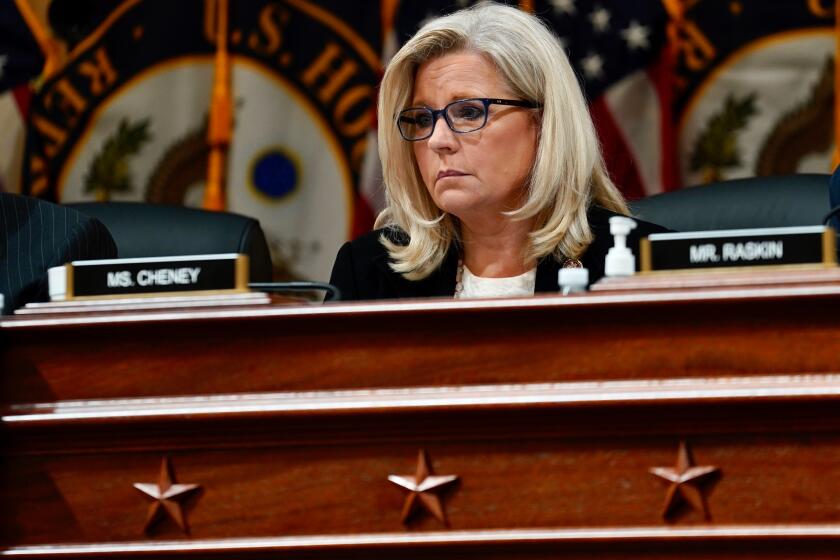Murkowski advances in Senate primary in Alaska, Palin in House race

JUNEAU, Alaska — Republican Sen. Lisa Murkowski and Kelly Tshibaka, her GOP rival who was endorsed by former President Trump, advanced from Tuesday’s primary in Alaska to the November general election, while Republican Sarah Palin, seeking a return to elected office after more than a decade, was among the candidates advancing in the race for Alaska’s only House seat.
Murkowski had expressed confidence that she would advance and earlier in the day told reporters that “what matters is winning in November.” Tshibaka called the results “the first step in breaking the Murkowski monarchy’s grip on Alaska.”
A Murkowski has held the Senate seat since 1981; before Lisa Murkowski, who has been in the Senate since late 2002, it was her father, Frank Murkowski.
Under a voter-approved elections process being used for the first time in Alaska elections this year, party primaries have been scrapped and ranked-choice voting is being used in general elections. The top four vote-getters in a primary race, regardless of party affiliation, advance to the general election.
The other two places in the Senate race were too early to call.
In the House primary, Palin, Democrat Mary Peltola and Republican Nick Begich advanced to the November election. It was too early to call the fourth spot. The winner of the November race will be elected to a two-year term.
Sarah Palin may have Trump’s backing, but the ex-governor and onetime vice presidential nominee is an underdog in Alaska’s unique election system.
Peltola, Begich and Palin were also competing in a special election to serve the remainder of late Rep. Don Young’s term, which ends early next year. Young, a Republican who held the seat for 49 years, died in March. The special election was voters’ first shot at ranked voting in a statewide race. The winner of the special election may not be known until at least Aug. 31.
The special election was on one side of the ballot; the other side contained primary races for U.S. Senate, U.S. House, governor and lieutenant governor and legislative seats.
Palin, in a statement Tuesday evening, called this “the first test case of the crazy, convoluted, undesirable ranked-choice voting system.”
Begich, a businessman from a family of prominent Democrats, came out hard against Palin during the campaign, seeking to cast her as someone chasing fame and as a quitter. Palin, who was John McCain’s vice presidential running mate in 2008, resigned as governor in 2009 with half her term remaining.
The three-term congresswoman loses to Harriet Hageman, a lawyer who has worked to block federal regulations in Wyoming and who was endorsed by former President Trump.
A narrator in one of Palin’s ads refers to Begich as “negative Nick” and says Palin wants to serve in Congress “to carry Don Young’s torch.”
Peltola, a former lawmaker who most recently worked at a commission whose goal is to rebuild salmon resources on the Kuskokwim River, has cast herself as a “regular Alaskan” and as a consensus builder.
In the race for Alaska governor, Republican Mike Dunleavy, Democrat Les Gara and independent Bill Walker advanced to the November general election. Other candidates in the race include Republican state Rep. Christopher Kurka and Charlie Pierce, a Republican borough mayor.
Dunleavy and his running mate, Nancy Dahlstrom, said in a statement that this “is only the start of the race. We’ll dig into all the numbers as they come in over the next few days to find out where we need to shore up our campaign, and we’re looking forward to reaching every Alaskan and earning their vote between now and November.”
Walker is running with Heidi Drygas and Gara with Jessica Cook.
Former President Trump uses primary endorsements to seek revenge, push election fraud lies and shape the Republican Party. How are his candidates faring?
Alaska’s elections process, approved by voters in 2020, ends party primaries and institutes ranked voting for general elections. In the primary, all candidates in a race are listed together; each voter picks one candidate per race. The four candidates who win the most votes in each race advance to the general election, in which ranked voting will be used.
Murkowski, a moderate who has been in the Senate for nearly 20 years and has at times been at odds with her party, faced 18 challengers.
Trump has lashed out against Murkowski, who voted to convict him in his second impeachment trial for his role in the Jan. 6, 2021, insurrection. Trump was acquitted.
More to Read
Get the L.A. Times Politics newsletter
Deeply reported insights into legislation, politics and policy from Sacramento, Washington and beyond. In your inbox three times per week.
You may occasionally receive promotional content from the Los Angeles Times.













